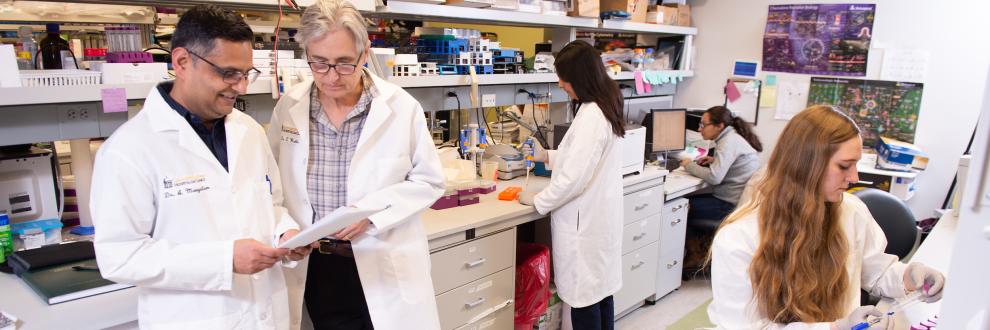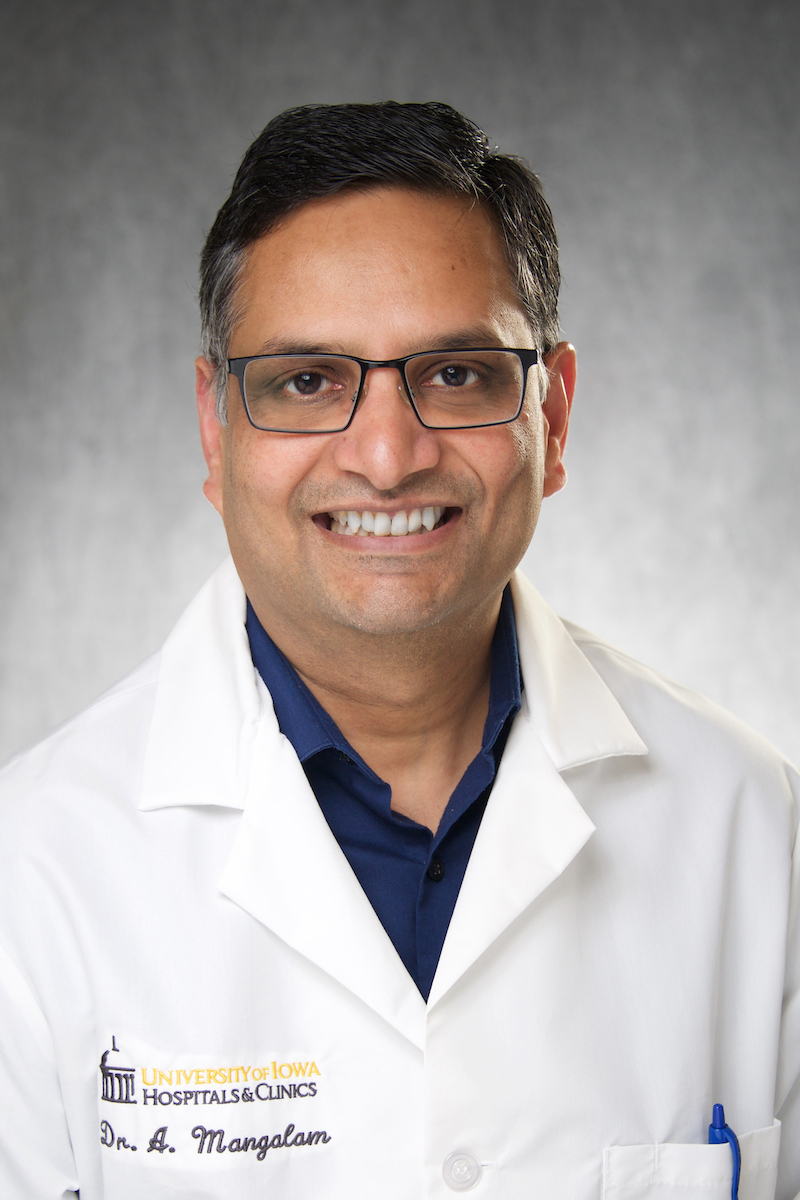Philanthropic gift to help UI team study role of progesterone in autoimmune disease

Ashutosh Mangalam, PhD, associate professor of pathology in the UI Roy J. and Lucille A. Carver College of Medicine, has received a four-year, $900, 000 philanthropic grant from the Heppelmann Wacek Charitable Gift Fund at Schwab Charitable to study the role of progesterone in immunomodulation.
Diseases that disrupt the immune system affect millions of people in the United States. According to estimates from the American Autoimmune Related Diseases Association (AARDA), over 50 million Americans are living with autoimmune diseases, such as multiple sclerosis, arthritis, lupus, and inflammatory bowel disease. In addition, the incidence of inflammatory and autoimmune diseases is rising in Western countries.
Many factors have been linked to this increased incidence, including diet, microbiota, and environmental toxins. Mangalam’s team has previously shown that diet and the gut microbiome play a role in multiple sclerosis (MS). Specifically, they found that a diet rich in isoflavone (a type of phytoestrogen) protected mice from severe MS-type disease, and that people with MS lack gut bacteria with ability to metabolize dietary phytoestrogen.
Over the past twenty years, Margaret (Peggy) Heppelmann has actively pursued a personal course of study regarding factors contributing to the rise of these chronic inflammatory diseases in Western countries, especially among young females. She was especially troubled by what she saw as a lack of focused scientific inquiry on this topic, and believed part of the problem was insufficient funding for research.
Mangalam will use the grant funding to investigate whether progestin (the synthetic form of progesterone) can contribute to the increased incidence of autoimmune diseases. His team will be studying whether progestins can induce pro-inflammatory immune responses in human tissues, and if they promote inflammatory disease in a preclinical model of MS. Additionally, the project will test whether natural progesterone is required to activate the disease protective effect of natural dietary phytoestrogens.
We are incredibly grateful to Peggy Heppelmann and Michael Wacek for establishing this grant and trusting us to use the support to find better answers to this puzzle.
The research will be conducted in collaboration with Terry Wahls, MD, UI professor of internal medicine. Wahls is internationally known for her research on the effects of diet on MS, which developed from her personal experience of using diet and supplements to overcome the disabling effects of the disease.
